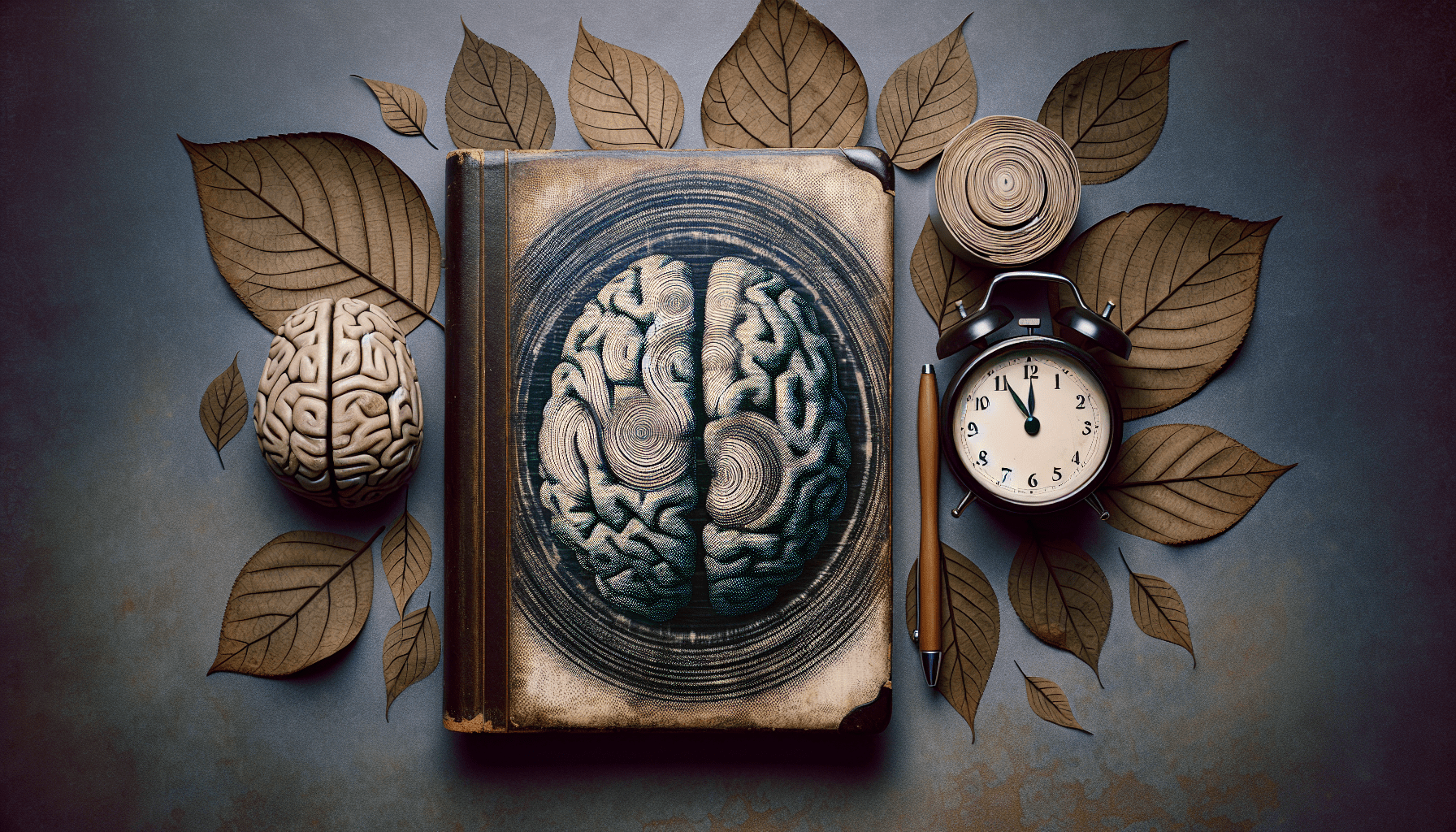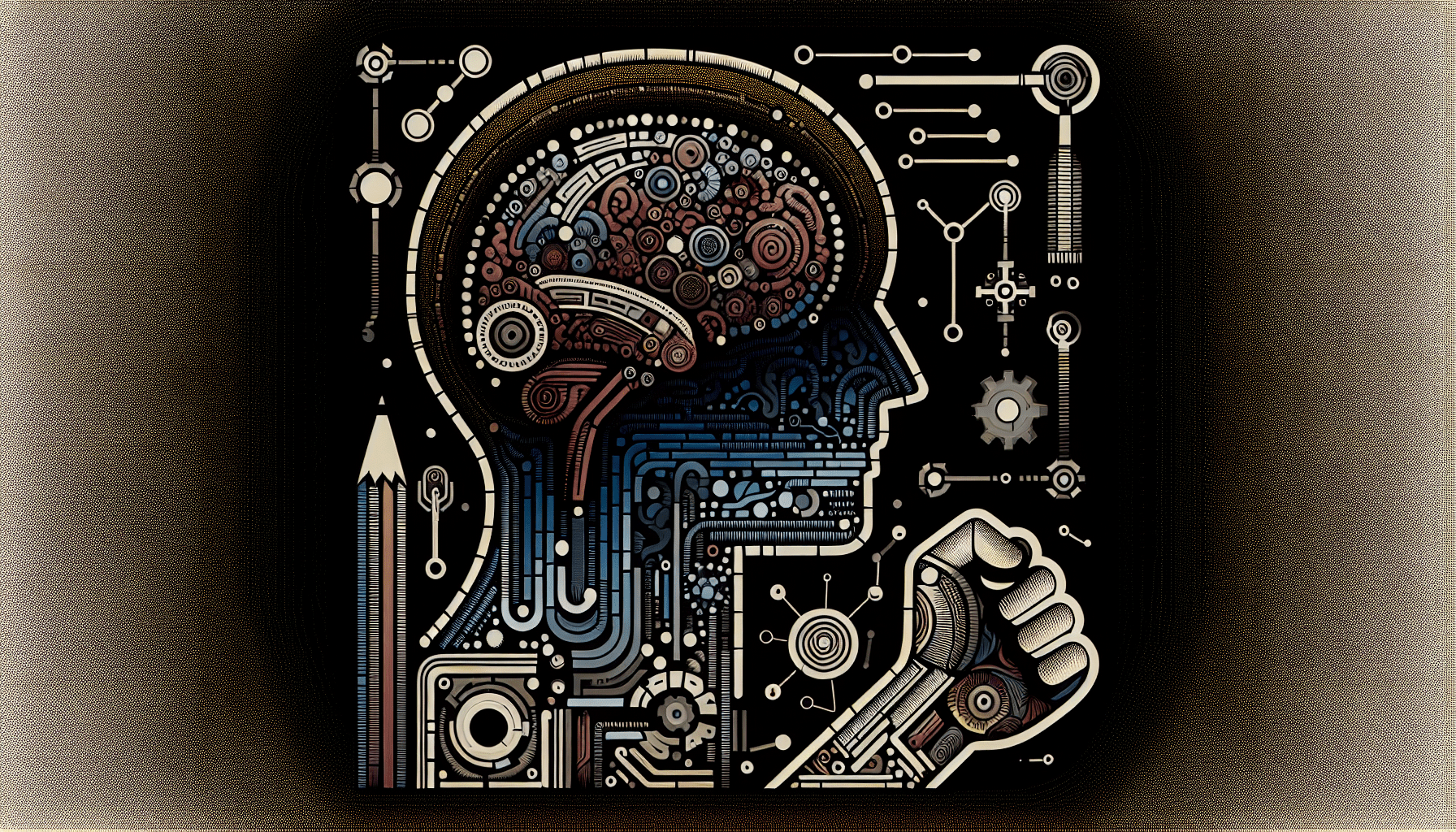Are you or someone you know struggling with age-related memory problems? Don't worry, there are effective strategies that can help you manage and cope with these challenges. In this article, we will explore various techniques and tips that can improve memory function and make day-to-day life easier for individuals facing memory difficulties. Whether it's creating daily routines, utilizing memory aids, or engaging in brain exercises, we've got you covered. So, let's dive in and discover these effective strategies for managing age-related memory problems together!

Understanding Age-Related Memory Problems
Common age-related memory changes
As we age, it is common to experience certain changes in our memory. For instance, you may find it slightly more challenging to remember someone's name or where you put your keys. These mild memory lapses are considered normal and are often a result of age-related changes in the brain. However, it is important to differentiate between normal memory changes and more serious cognitive decline that may indicate conditions like dementia.
Distinguishing normal aging from dementia
Distinguishing between normal memory changes and the onset of dementia can be quite challenging. Memory loss is a symptom of various types of dementia, including Alzheimer's disease. If you're noticing significant memory impairment that affects your ability to carry out daily activities, it is crucial to consult a healthcare professional for a comprehensive evaluation. They can assess your memory and cognitive function through various tests and help determine the best course of action for managing your memory problems.
Cognition and aging: What is normal?
As we age, it is important to understand what constitutes normal cognitive function. While it is normal to experience mild memory changes, normal aging does not typically result in severe memory loss or significant decline in other cognitive abilities. Normal cognitive aging allows individuals to maintain their independence and continue engaging in everyday activities without significant difficulty. Seeking professional guidance can help you gain a better understanding of what is considered normal for your age and identify any potential concerns early on.
Importance of Regular Health Check-ups
Medical factors affecting memory
Various medical factors can contribute to memory problems, and many of them are treatable or manageable. Conditions such as diabetes, hypertension, and thyroid disorders can impact cognitive function and memory. Additionally, certain medications or combinations of medications may have side effects that affect memory. Regular health check-ups can help identify and address these underlying medical issues, reducing the impact they have on your memory.
Identifying health problems contributing to memory loss
Regular health check-ups play a vital role in identifying health problems that may contribute to memory loss. Comprehensive medical evaluations can help identify any underlying issues, such as vitamin deficiencies, hormone imbalances, or infections, that may be affecting your cognitive function. By addressing these health problems, you can potentially improve your memory and overall brain health.
Consequences of neglecting regular check-ups
Neglecting regular health check-ups can have serious consequences for your memory and overall well-being. Undiagnosed medical conditions or unmanaged health problems can worsen over time, further impairing your memory and cognitive function. By prioritizing regular check-ups and working closely with your healthcare provider, you can address any potential health issues early on and take proactive steps to maintain your memory and brain health.
Physical Exercise and Memory
How regular exercise supports brain health
Engaging in regular physical exercise not only benefits your physical health but also supports brain health and memory function. Exercise increases blood flow to the brain, promoting the growth of new blood vessels and neurons. It also stimulates the release of chemicals in the brain that enhance mood, reduce stress, and improve cognitive abilities. By incorporating regular exercise into your routine, you can improve your memory and overall brain health.
Specific exercises for memory enhancement
Certain exercises have been shown to specifically enhance memory and cognitive function. Aerobic exercises, such as walking, jogging, or swimming, increase the flow of oxygen to the brain and have a positive impact on memory. Strength training exercises, like weightlifting or resistance training, can also contribute to improved memory and cognitive abilities. Additionally, activities that involve coordination and balance, such as yoga or tai chi, have been found to benefit memory and brain health.
Balancing exercise routines for overall health
While exercise is important for memory enhancement, it is vital to strike a balance and include a variety of activities in your routine for overall health benefits. Incorporating cardiovascular exercises, strength training, and activities that focus on flexibility and balance can help support your physical health, which in turn positively impacts your cognitive abilities. Aim for at least 150 minutes of moderate-intensity aerobic exercise per week, along with strength training exercises twice a week, to optimize both your memory and overall well-being.
Mental Stimulation and Intellectual Activities
Cognitive benefits of lifelong learning
Engaging in intellectual activities and lifelong learning is beneficial for brain health and memory enhancement. Constant mental stimulation helps keep the brain active and improves cognitive function. Learning new skills, exploring new hobbies, or engaging in intellectually challenging tasks all contribute to the formation of new neural connections in the brain, which can enhance memory and cognitive abilities.
Types of intellectual exercises to boost memory
There are various types of intellectual exercises that can boost memory and cognitive function. Reading books, solving puzzles, playing strategy-based games like chess or Sudoku, learning a musical instrument, or engaging in activities that require critical thinking and problem-solving skills can all have a positive impact on memory. The key is to choose activities that challenge and stimulate your brain, helping to maintain and improve your memory over time.
Engaging in hobby activities for cognitive stimulation
Engaging in hobbies or activities that you enjoy can provide not only pleasure but also cognitive stimulation. Whether it's painting, gardening, cooking, or playing a sport, pursuing activities that bring you joy engages different parts of the brain and promotes memory function. By incorporating these activities into your daily routine, you can enhance your memory while also enjoying yourself.
Healthy Diet and Adequate Nutrition
Link between nutrition and cognitive health
A healthy diet plays a crucial role in maintaining cognitive health and memory function. Certain nutrients, such as omega-3 fatty acids, antioxidants, and vitamins, have been linked to improved memory and brain health. Consuming a balanced diet that includes fruits, vegetables, whole grains, lean proteins, and healthy fats provides the necessary nutrients to support brain function and enhance memory.
Foods beneficial for memory improvement
Several foods have been associated with memory improvement and overall brain health. Incorporating foods rich in omega-3 fatty acids, such as fatty fish (salmon, trout), flaxseed, and walnuts, can benefit memory function. Additionally, consuming berries (blueberries, strawberries) that are packed with antioxidants may help improve memory. Other memory-enhancing foods include dark chocolate, turmeric, broccoli, pumpkin seeds, and green tea.
Understanding the impact of hydration on cognition
Proper hydration is essential for optimal cognitive function and memory. Dehydration can lead to fatigue, difficulty concentrating, and impaired cognitive performance. It is important to stay adequately hydrated throughout the day by drinking water and other hydrating beverages. Pay attention to your body's signals and make a conscious effort to drink enough fluids to support your memory and overall cognitive health.
Role of Adequate Sleep and Rest
How sleep deprivation affects memory
Sleep deprivation can have a significant negative impact on memory and cognitive function. During sleep, the brain consolidates memories and facilitates the transfer of information from short-term to long-term memory. Lack of sufficient sleep impairs this process, making it difficult for you to retain and recall information. Chronic sleep deprivation has also been linked to an increased risk of developing cognitive disorders later in life.
Sleeping habits for healthy cognition
Establishing healthy sleeping habits is crucial for maintaining healthy cognition and memory. Aim for 7-9 hours of quality sleep per night to support optimal brain function. Create a relaxing bedtime routine that includes dimming the lights, avoiding electronic devices before bed, and engaging in calming activities like reading or listening to soft music. Ensure your sleep environment is comfortable, quiet, and conducive to restful sleep.
Importance of maintaining consistent sleep schedule
Maintaining a consistent sleep schedule is equally important as the quantity of sleep. Going to bed and waking up at the same time every day helps regulate your body's internal clock and promotes healthy sleep patterns. Irregular sleep schedules and frequent disruptions to your sleep routine can negatively impact memory consolidation and cognitive function. By prioritizing a consistent sleep schedule, you can optimize your memory and overall brain health.

Importance of Social Engagement
How social activities support cognitive health
Social engagement and meaningful relationships play a vital role in cognitive health and memory enhancement. Interacting with others stimulates the brain, improves mood, and reduces the risk of cognitive decline. Engaging in social activities, such as joining clubs or groups, volunteering, or participating in community events, provides mental stimulation and fosters connections that positively impact memory function.
Staying connected: facing cognitive decline together
Facing cognitive decline can be challenging, but staying connected with loved ones can make a significant difference. Building a strong support system of family and friends who understand and support your memory concerns can offer emotional support and encouragement. Together, you can explore strategies to manage memory problems, engage in intellectually stimulating activities, and maintain a sense of purpose and connection.
Mental health benefits and memory enhancement with socializing
Socializing not only provides mental health benefits but also enhances memory function. Engaging in conversations, sharing experiences, and participating in social activities promote cognitive stimulation and encourage the brain to form new connections. Additionally, social interaction reduces stress and improves overall well-being, which has a direct positive impact on memory and cognitive abilities.
Stress Management and Memory Improvement
Understanding the link between chronic stress and memory loss
Chronic stress can have a detrimental effect on memory and cognitive function. Prolonged exposure to stress hormones can damage areas of the brain involved in memory formation and retrieval. Stress can also impair attention, concentration, and decision-making, further affecting memory performance. Managing stress effectively is essential for maintaining good memory health.
Effective stress management techniques
There are various effective stress management techniques that can help mitigate the impact of stress on memory. Practices such as deep breathing exercises, meditation, yoga, and mindfulness have been shown to reduce stress levels and improve cognitive function. Engaging in activities that promote relaxation and provide an outlet for stress, such as listening to calming music, engaging in creative pursuits, or spending time in nature, can also have a positive impact on memory and overall well-being.
Role of mindfulness and meditation on memory enhancement
Mindfulness and meditation have gained recognition for their ability to improve memory and cognitive performance. These practices help increase self-awareness, promote relaxation, and reduce stress. Regular mindfulness or meditation exercises can train the brain to focus and stay present, improving attention and aiding memory recall. By incorporating mindfulness and meditation into your daily routine, you can enhance your memory and overall cognitive function.

Technological Aids for Memory Support
Overview of memory improvement apps and devices
With advancements in technology, various memory improvement apps and devices have been developed to support individuals with memory problems. These tools range from reminder apps that help with daily tasks to smart devices that assist in medication management. Memory improvement apps often use techniques such as spaced repetition and cognitive exercises to enhance memory function. However, it is important to choose reliable and user-friendly options that suit your specific memory needs.
How technology can assist in daily tasks
Technology can assist individuals with memory problems in their daily tasks and routines. Smart devices, such as digital calendars or reminder apps, can help create schedules, set alarms, and provide prompts for important events or activities. Some apps also allow users to input medication schedules, ensuring they are taking their medications as prescribed. These technological aids can help alleviate some of the memory burden and provide support in maintaining daily routines.
Limitations and ethical perspectives of memory-aid devices
While memory aids can be beneficial, it is important to consider their limitations and ethical perspectives. Technology cannot replace the need for human connection and support. It is essential to maintain a balance between utilizing memory aid devices and engaging in activities that promote natural memory function. Additionally, privacy and security should be taken into consideration when using memory improvement apps or devices. It is important to choose reputable options and protect personal information to ensure the overall efficacy and ethical use of these tools.
Seeking Professional Help
When to seek help for memory problems
If you are experiencing persistent memory problems that significantly impact your daily life, it is important to seek professional help. Memory loss that affects your ability to perform routine tasks, maintain relationships, or impacts your overall well-being may require further evaluation. Make an appointment with a healthcare provider to discuss your concerns and undergo a thorough assessment to determine the cause of your memory difficulties.
Understanding the role of a neuropsychologist
A neuropsychologist plays a crucial role in assessing and diagnosing memory problems. They specialize in understanding the complex relationship between the brain, behavior, and cognition. A neuropsychological evaluation typically involves various tests and assessments to evaluate memory, attention, language skills, and other cognitive functions. They can provide valuable insights into the nature and extent of your memory problems, help differentiate between normal aging and more serious conditions, and guide you towards appropriate interventions or treatments.
Therapy options for memory enhancement
Therapy options are available to help manage and enhance memory function. Cognitive rehabilitation therapy focuses on developing compensatory strategies to overcome memory difficulties and improve daily functioning. Memory training programs, often led by occupational therapists or speech-language pathologists, can help individuals learn memory techniques and strategies to compensate for specific memory deficits. It is important to explore these therapy options and discuss with healthcare professionals to determine the most suitable approach for your memory enhancement needs.


